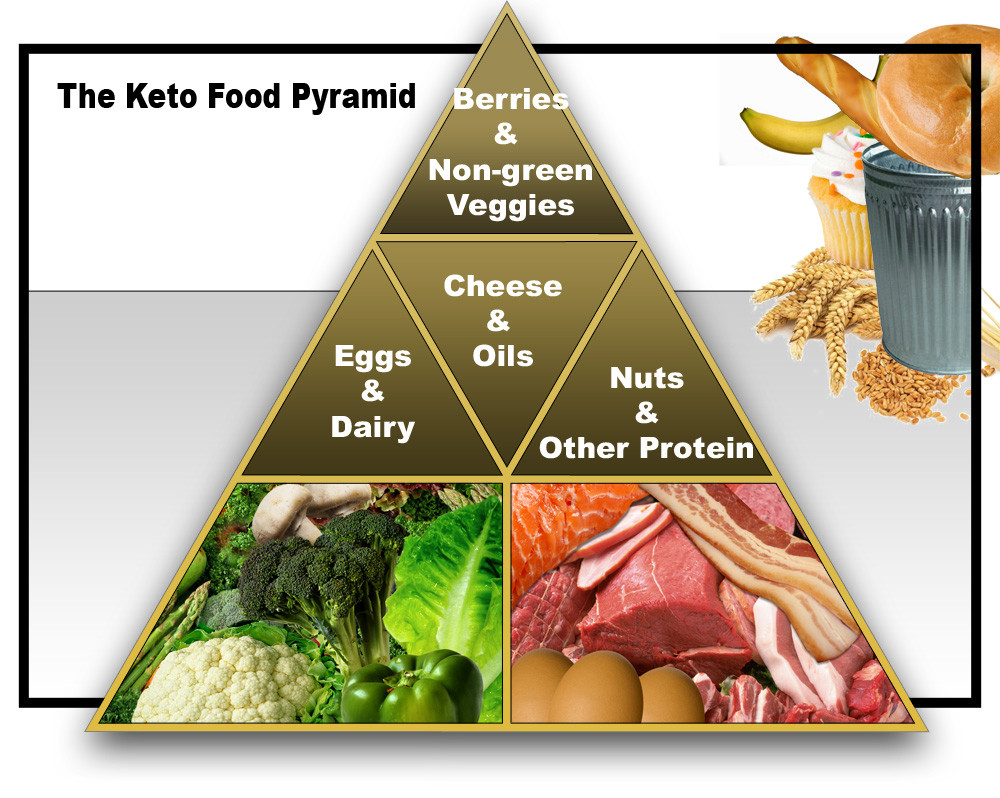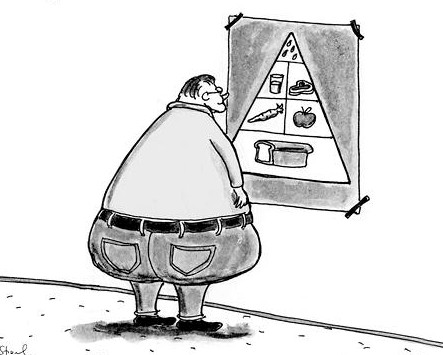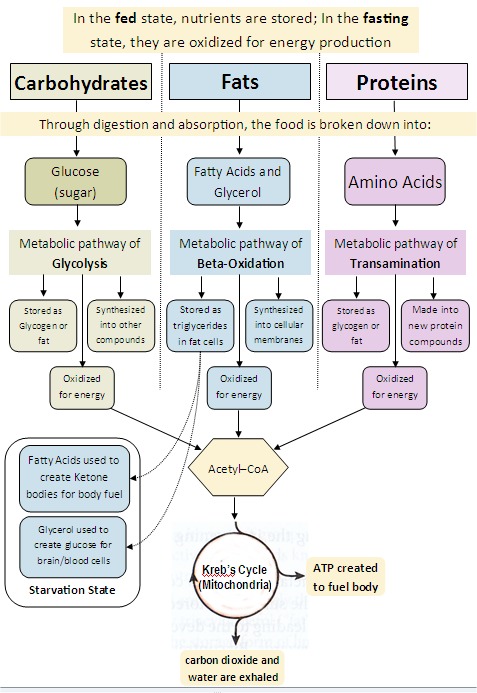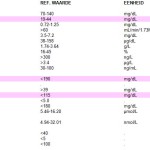You are what you eat.
If you feel like shit – that’s because you eat like shit.
Lately (last 3-4 months) I’ve been running several experiments to find a diet on which I can perform optimally. I’m a big believer that health is one of the key ingredients for a better life;
- If your nutrition is in order, you’ll have more energy.
- If you have more energy, your brain functions better.
- If your brain functions better, you make better choices.
- Your life quality is the product of your choices.
Better input, better output.
Simple, right?
There’s a lot of conflicting opinions on this topic, but I’ve finally settled on a diet that seems to work great. In this article I’ll go in-depth on the ketogenic diet.
I’m convinced that a diet, high in fat, moderate in protein and low in carbohydrates is optimal for (almost) anyone.
If the whole world would switch to this diet, we’d see a dramatic decline in health expenses globally (+-500B/year)
I’ll also be using a Color code in this article, like so:
- Difficult words that make me feel smart
That will be all.
—————————————————-
What Is A Ketogenic Diet?
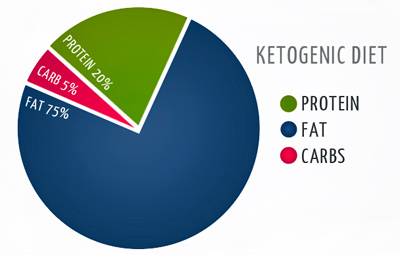
A ketogenic diet is a diet that is high in fat, moderate in protein and low (or no) carbs.
It’s based on the premise that humans were never designed to eat so much damn carbs.
In the paleolithic era, carbohydrates were only available seasonally.
To supply food for a constantly growing population, we’ve turned to (cheaper) mass production of corn, wheat, soy and other modified crops (crap(s)). This hasn’t only degraded the quality of grains but also the amount it represents in our diet.
Literally turning the food pyramid upside-down since agriculture became the established norm.
Grains are cheaper to produce and maintain, compared to decent protein sources like cattle or chicken farms. Additionally, genetic modification, chemical repellents and synthetic fertilizers has made the plants low-maintenance and virtually pest-free.
…
Because there’s nothing in the plants that even the insects want – it’s devoid of nutrients
“a “food” that no other animal will touch”
People that are following the “traditional food pyramid” don’t see results. They need to do hours upon hours of cardio to get some weight off.
They also aren’t allowed to go below a 20% caloric deficit, otherwise this would act as a stressor on their body, making them hold on to their fat reserves extra-tightly.
“Doin’ it right!”
“Grains, a food group that we didn’t eat for 97% of our human existence, are now at the base of the USDA food pyramid with 6-11 servings a day recommended.” – PaleoLeap
How Does The Ketogenic Diet Work?
Like this;
Your body can mainly use carbohydrates (pasta, rice, sugars, … ) AND/OR fats (butter, fatty meats, oils, …) for energy.
If carbs are available, your body will use those first. If carbs are not available, your body will to start to break down the ingested and stored fats to provide energy.
This is called beta-oxidization.
It’s basically another way to fuel our cells with the necessary ATP (adenosine triphosphate a.k.a. energy). Here’s a fancy multi-colored flowchart that explains how it works;
When these fatty-acids get burned off in your liver, you will start to produce ketones (most notably; beta-hydroxybutyrate). Your body and brain can use these for fuel.
Jet-fuel.
When your level of ketones is high enough, your brain will start using these for energy. It’s actually a preferred energy source for your brain AND we function better on it.
Which makes perfect sense as it is our more “natural” diet.
Our ancestors didn’t always have access to food, and they certainly didn’t always have access to glucose. Their body was feasting on the fat from the last woolly mammoth or saber-toothed tiger. – Craig, Ruled.me
Why Is It Better?
Here’s some bullets to consider if you’re looking into making the leap;
- By switching over to a ketogenic (high fat & low carb) diet, you improve your bodies ability to use fat for fuel dramatically. Which means more (and more efficient!) fat-burning
- You eat less calories overall because fat and protein (which is the bulk of your diet) makes you feel satiated for extended periods of time
- Your triglycerides drop to the floor and HDL (“good” cholesterol) increases. This reduces heart-disease risk and blood pressure dramatically
- Your blood sugar & insulin levels drop to the floor, reducing risk for type-2 diabetes and risk of heart disease
- Your fat-transport is up-regulated and mitochondrial function increases. This means you’ll burn more calories in your resting state.
- Your LDL pattern improves; Your LDL particles change from small (bad) LDL to large LDL – which is harmless.
- Ketones (compared to glucose) leave fewer “junk” (free radicals) in the mitochondria. This means better neural repair and recovery
- No blood sugar spikes meaning you’ll have more constant energy instead of “crashes” after meals and “sugar highs”
Also: my stool has become very firm.
VERY firm.
(but that could also be contributed to the massive amount of veggies & wheatgrass I’m devouring at the moment)
Conclusion?
The ketogenic diet is very efficient for fat-loss & increased cognitive function.
So…
What Can You Eat?
So if I can’t eat carbs like pasta, sugars, grains, breads, oatmeal and all that stuff. What’s left?
*Note the trash-can in the upper-right
Get most of your calories from fat & moderate protein. Things like
- Bacon, fatty steak, ground beef/pork, eggs, bacon, salmon, turkey, chicken avocado, olive oil, grass-fed butter, coconut oil, bacon, mct oil, …
- Low glycemic vegetables are infinite
And remember;
- AVOID CARBS (or at least not in the first two weeks). Try to stay under 20-30g/day of net carbs (= total carbs – fiber))
Be sure to keep your protein requirements around the recommended amount by using the keto-calculator. IF you eat too much protein your body will convert the excess back to glucose, kicking you out of ketosis and making you tired once again.
As a rule of thumb: stay around 1.3/1.5 g of protein/kg bodyweight (or 1g/pound of bodyweight)
Try to limit carbohydrates as best as possible (especially in the beginning). After you’ve made the switch and your body gets used to burning fat as fuel, you can gradually re-introduce these.
The Catch?
keto/low-carb flu
The initial “switching period” will be the worst – meaning your body (enzymes) will need to adapt to this completely new type of diet. Your body will need to switch gears to run on fat instead of carbs. This will need a “switching period” in which you’ll feel tired and lethargic.
We call this “the keto-flu”
It’s analogous to a factory that has been producing laptops whole their life and one day they decide to switch over to the booming yogurt business.
Confusion and chaos in the workplace
.. making you feel like crap.
This faze might last from 1 day to a week, depending on the glucose/glycogen levels remaining in your body. Here are some tips to speed it up;
- Eat only animal protein, such as meat and eggs.
- Use medium-chain triglyceride (MCT) oil.
- Increase the fat in your diet so you eat more than 65 percent of your calories from fat.
- Use coconut oil as a supplement.
- Combine a very low-carbohydrate diet (and 24h+ fasting) with long periods of high intensity training. For example: Sprints & weightlifting
Electrolytes
During this period your body will also start shedding a lot of water, containing vital electrolytes (since carbs retain a lot of water). These will need replenishing (DON’T UNDERESTIMATE THIS!) or else you might become foggy/light-headed and fatigued. Electrolytes are vital for cellular function – if your cells don’t function decently, you’re pretty much a miserable wreck.
Aim daily for;
- 5000 mg of sodium (normal or sea salt) (= +-1 teaspoon)
- 1000 mg of potassium, in the form of potassium chloride or potassium sulfate (lo salt in most groceries)
- 300 mg of magnesium (Effervescent tablets – they are really cheap)
I recommend making “ketorade” which will refuel your electrolytes on a daily basis. Fill a 1.5l bottle of water with 2/3tsp of sea salt, 1/2 tsp of lo-salt & 1 tablet of +-200mg magnesium and drink that throughout the day. It tastes like salty lemonade.
Sea salt (sodium)
Lo salt (66% potassium)
Magnesium tablets
How To Start?
My recommendation would be to start with a 1-day fast and on the second day you go for a hour long run (or as long as you can manage) to deplete all your remaining glycogen stores. Drink a full bottle of “ketorade” after/during the training. This should speed up ketosis significantly.
I realize this is an extreme diet. If you slip back into bad habits I’d recommend switching over to a Paleolithic diet first, in gradual steps.
Here’s an overview of a basic ketogenic diet I’ve followed in the past when trying to lose some weight. It’s a big-ass salad for lunch, a protein shake as snack and some steamed veggies & eggs in the evening. Extremely simple & tasty.
Essence
I was very skeptical in the beginning and even a bit frightened, meaning I’d have to eat a ridiculous quantity of eggs and fat (12-15 whole eggs/day & 65%+ calories from fat). Pretty much the direct opposite of everything I’ve ever learned in school (and I’m doing a personal-trainer oriented education atm)
- “Saturated fat is bad for you!”
- “Your body needs sugars for energy”
- …
Now, I’m 3 months in and don’t consider EVER switching back (nor craving sugary stuff). I can eat as much bacon and eggs as I want. What’s not to love?
So, remember;
- Less than 20/30g of net carbs/day
- 1.3/1.5g of protein/kg of bodyweight
- Replenish electrolytes with “ketorade”
- Recommendation to speed up ketosis: 1 full day of fasting + 1h run on second day & ketorade
It’s not a difficult diet once you’ve switched to the “dark-side”.
My blood levels have changed as expected (good) and has puzzled my (conservative) doctor.
Other ambassadors of a low-carb diet are Peter attia, Tim Ferriss & Dave Asprey (#SocialProof). I’d definitely recommend to look into this further.
Here’s a great talk, done by Peter Attia on the Ketogenic diet (definitely worth watching fully – this might change your life)
Note: Not everyone does great on a low carb diet. If you don’t feel better after two weeks of low-carb, try slightly increasing the amount of carbs (by 20g/day) and go by feel to get the most benefits for your body. Everybody is a unique little snowflake!
————————————————————————-
Disclaimer: Simon is a 20 year-old college student. Although much of his “life-advice” is (very) interesting and equally tempting, it would be unwise to take everything he says literally. Therefore, Simon (yes – that’s 3rd person) believes it’s a good idea to consult with your local doctor/shaman/health-person before dramatically changing your lifestyle.
He will also not be held accountable when protruding sexual organs get stuck in printing devices.
That will be all,
Take care & stay strong
– S
Sources
- http://www.sciencedirect.com/science/article/pii/S0305736499910946
- http://eebweb.arizona.edu/faculty/saleska/Ecol596L/Readings/Newell02_seasonal.TNC.tropics_Oecologia.pdf
- http://brighterbrains.org/articles/entry/ketosis-makes-your-brain-work-better-its-why-dave-asprey-puts-butter-in-his
- https://psychologytoday.com/blog/evolutionary-psychiatry/201104/your-brain-ketones
- http://authoritynutrition.com/10-benefits-of-low-carb-ketogenic-diets/
- http://www.annualreviews.org/doi/full/10.1146/annurev-publhealth-032013-182351
- My head
